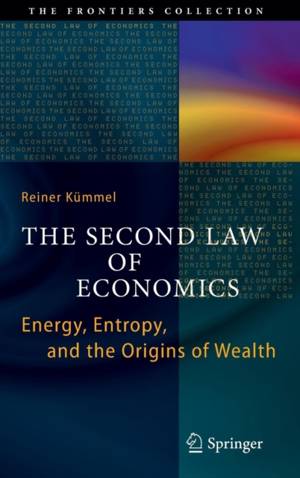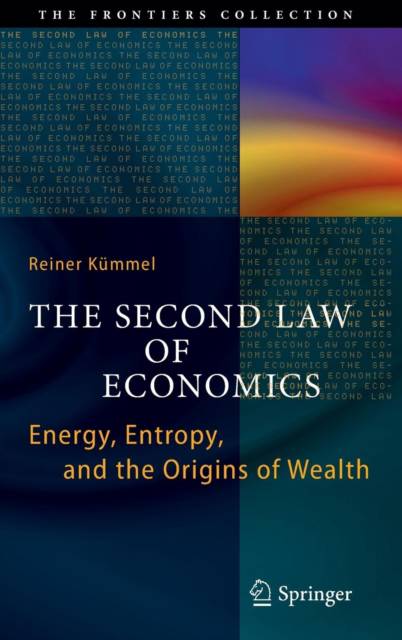
Door een staking bij bpost kan je online bestelling op dit moment iets langer onderweg zijn dan voorzien. Dringend iets nodig? Onze winkels ontvangen jou met open armen!
- Afhalen na 1 uur in een winkel met voorraad
- Gratis thuislevering in België vanaf € 30
- Ruim aanbod met 7 miljoen producten
Door een staking bij bpost kan je online bestelling op dit moment iets langer onderweg zijn dan voorzien. Dringend iets nodig? Onze winkels ontvangen jou met open armen!
- Afhalen na 1 uur in een winkel met voorraad
- Gratis thuislevering in België vanaf € 30
- Ruim aanbod met 7 miljoen producten
Zoeken
€ 97,95
+ 195 punten
Uitvoering
Omschrijving
Nothing happens in the world without energy conversion and entropy production. These fundamental natural laws are familiar to most of us when applied to the evolution of stars, biological processes, or the working of an internal combustion engine, but what about industrial economies and wealth production, or their constant companion, pollution? Does economics conform to the First and the Second Law of Thermodynamics? In this important book, Reiner Kümmel takes us on a fascinating tour of these laws and their influence on natural, technological, and social evolution. Analyzing economic growth in Germany, Japan, and the United States in light of technological constraints on capital, labor, and energy, Professor Kümmel upends conventional economic wisdom by showing that the productive power of energy far outweighs its small share of costs, while for labor just the opposite is true. Wealth creation by energy conversion is accompanied and limited by polluting emissions that are coupled to entropy production. These facts constitute the Second Law of Economics. They take on unprecedented importance in a world that is facing peak oil, debt-driven economic turmoil, and threats from pollution and climate change. They complement the First Law of Economics: Wealth is allocated on markets, and the legal framework determines the outcome. By applying the First and Second Law we understand the true origins of wealth production, the issues that imperil the goal of sustainable development, and the technological options that are compatible both with this goal and with natural laws. The critical role of energy and entropy in the productive sectors of the economy must be realized if we are to create a road map that avoids a Dark Age of shrinking natural resources, environmental degradation, and increasing social tensions.
Specificaties
Betrokkenen
- Auteur(s):
- Uitgeverij:
Inhoud
- Aantal bladzijden:
- 296
- Taal:
- Engels
- Reeks:
Eigenschappen
- Productcode (EAN):
- 9781441993649
- Verschijningsdatum:
- 28/06/2011
- Uitvoering:
- Hardcover
- Formaat:
- Ongenaaid / garenloos gebonden
- Afmetingen:
- 155 mm x 234 mm
- Gewicht:
- 589 g

Alleen bij Standaard Boekhandel
+ 195 punten op je klantenkaart van Standaard Boekhandel
Beoordelingen
We publiceren alleen reviews die voldoen aan de voorwaarden voor reviews. Bekijk onze voorwaarden voor reviews.











